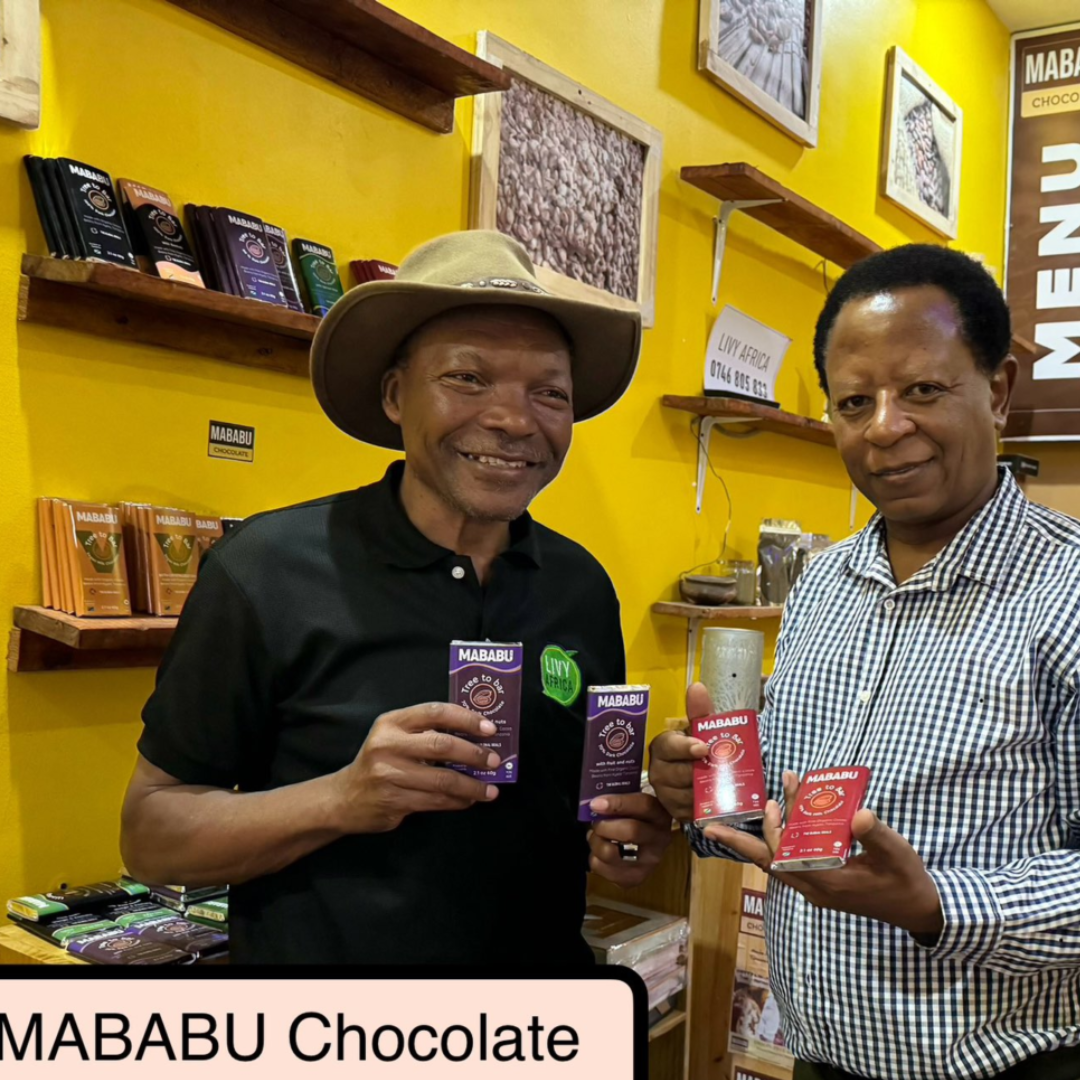DAR ES SALAAM, Tanzania – A profound transformation is taking root in Tanzania’s agricultural landscape as the nation shifts from exporting raw commodities to crafting its own premium chocolate brands. Spearheading this evolution is Livy Africa, the visionary company behind Mababu Chocolate, in strategic partnership with the SAGCOT Centre (recently transitioned to AGCOT Centre). Mababu Chocholate is redefining Tanzania’s role in the global cocoa value chain—moving from bean exporter to world-class “tree-to-bar” chocolate producer.
For decades, Tanzanian farmers have harvested cocoa, palm oil and other commodities largely for export, leaving the lion’s share of value-addition—and profit—to end-product manufacturers abroad. Observing this missed opportunity, Chris Mwasambili, founder and CEO of Livy Africa, returned to Tanzania after years in England with a clear mission: “To capture the full potential of our produce, we must own the entire journey—from the farm to the consumer’s table.” His “tree-to-bar” philosophy ensures that cocoa processing, bean fermentation, roasting and chocolate production happen on Tanzanian soil, maximizing returns for local farmers and reinvesting revenue into rural communities.
Since its inception, the SAGCOT Centre has played a pivotal role in realizing this vision. As a government-backed institution engaging both public and private stakeholders, SAGCOT provides the technical support, market linkages and financing frameworks necessary for smallholder farmers to thrive in higher-value markets. “Our ambition is for Tanzania to be celebrated not only for its exceptional cocoa beans but for the distinctive brands we create,” says Tullah Mloge of the Centre. “Mababu Chocolate is fast becoming synonymous with quality, authenticity and Tanzanian pride.”
Harnessing the Southern Highlands’ Unique Terroir
Mababu’s cocoa beans are sourced from the fertile plantations of Kiela Mbeya in the Southern Highlands—an area renowned for its rich volcanic soils and ideal climate. Here, thousands of smallholder families cultivate organic, chemical-free cocoa under rigorous quality-assurance protocols. Through intensive agronomy training and certification support provided by SAGCOT and Livy Africa’s field teams, farmers have adopted best practices in fermentation, drying and traceable record-keeping—ensuring every batch meets the stringent standards demanded by discerning chocolate connoisseurs.
Empowering Smallholders through Organization
One of the sector’s greatest hurdles has been its fragmentation: tens of thousands of smallholder farmers, each cultivating tiny plots, often lack the collective bargaining power required to access premium markets or secure affordable finance. “By organizing these farmers into cooperatives and training groups, we unlock market opportunities, technology transfers and fair-trade premiums,” explains Mwasambili. This farmer-first approach has already boosted household incomes, reduced post-harvest losses and fostered sustainable livelihoods.
A Symphony of Flavors: Thirty Chocolate Varieties and Counting
Mababu Chocolate’s growing portfolio now features thirty distinct products—from intense 100 percent dark bars that celebrate pure cocoa’s complexity to inventive blends infused with locally sourced raisins, Tanzanian vanilla, fresh milk and even coffee. Each variety is a tribute to Tanzania’s diverse agricultural bounty, offering international buyers an authentic taste of the country’s terroir. Livy Africa’s state-of-the-art processing facility in Dar es Salaam meticulously refines these beans into smooth, flavorful bars that stand shoulder-to-shoulder with the world’s finest chocolatiers.
Building a Global Brand Identity
Beyond production, brand development has emerged as an equally critical frontier. Today’s consumers demand transparency, traceability and socially responsible sourcing—attributes that Mababu Chocolate proudly embodies. “A brand is far more than a logo; it represents the story, values and quality behind each bar,” says Mwasambili. By weaving narratives of chemical-free farming, women’s empowerment and community reinvestment into their marketing, Mababu is cultivating an emotional connection with buyers in Europe, North America and Asia.
Showcasing Success on the World Stage
Strategic exhibitions and trade missions—such as the recent Saba Saba fairs in partnership with TanTrade—have amplified Tanzania’s chocolate ambitions. At these events, Mababu Chocolate captivates attendees with live bean-to-bar demonstrations, farmer testimonials and tastings that highlight the brand’s exceptional flavor profiles. Early export contracts secured at these platforms underscore growing international interest and signal Tanzania’s arrival as a serious contender in the global chocolate market.
A Sweet Future for Tanzanian Agriculture
The ascent of Mababu Chocolate marks more than the birth of a new confectionery; it represents a scalable model for value addition across all of Tanzania’s agricultural commodities. By retaining more value locally, empowering smallholder farmers through organisation and training, and crafting a compelling brand narrative, Tanzania is laying the groundwork for sustainable economic growth, job creation and rural development. As Mababu’s bars make their way onto premium shelves worldwide, they carry with them the hopes of countless farming families—and the promise of a sweeter future for Tanzanian agriculture.
